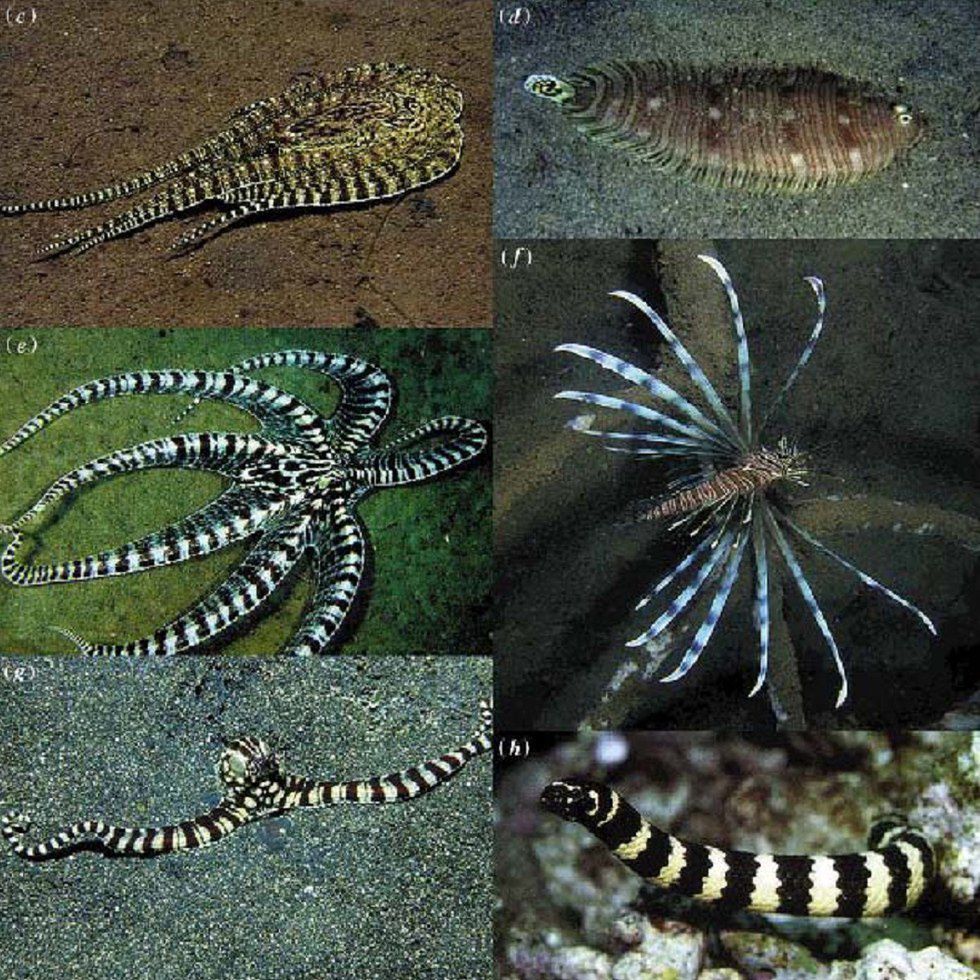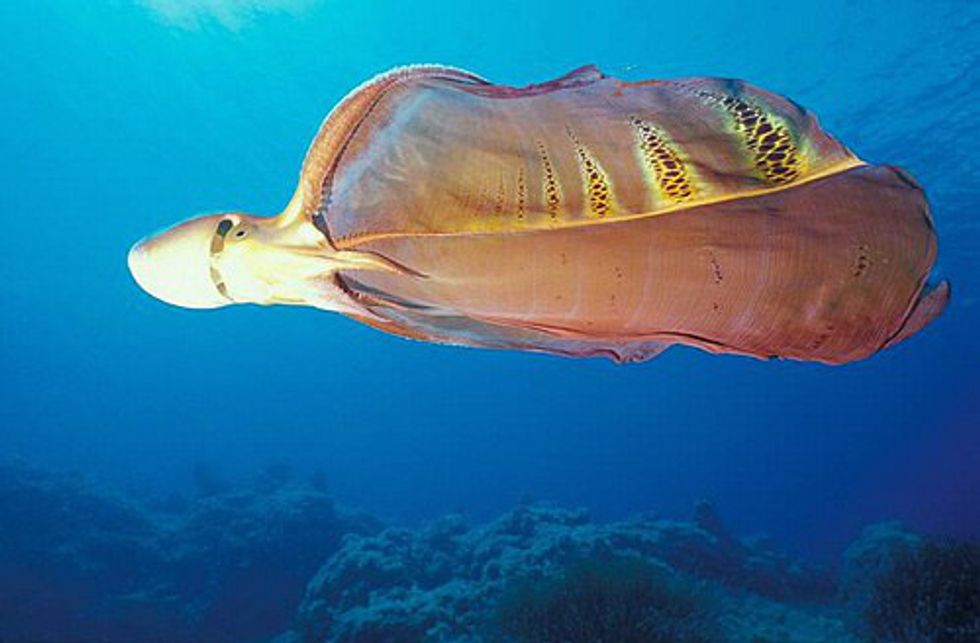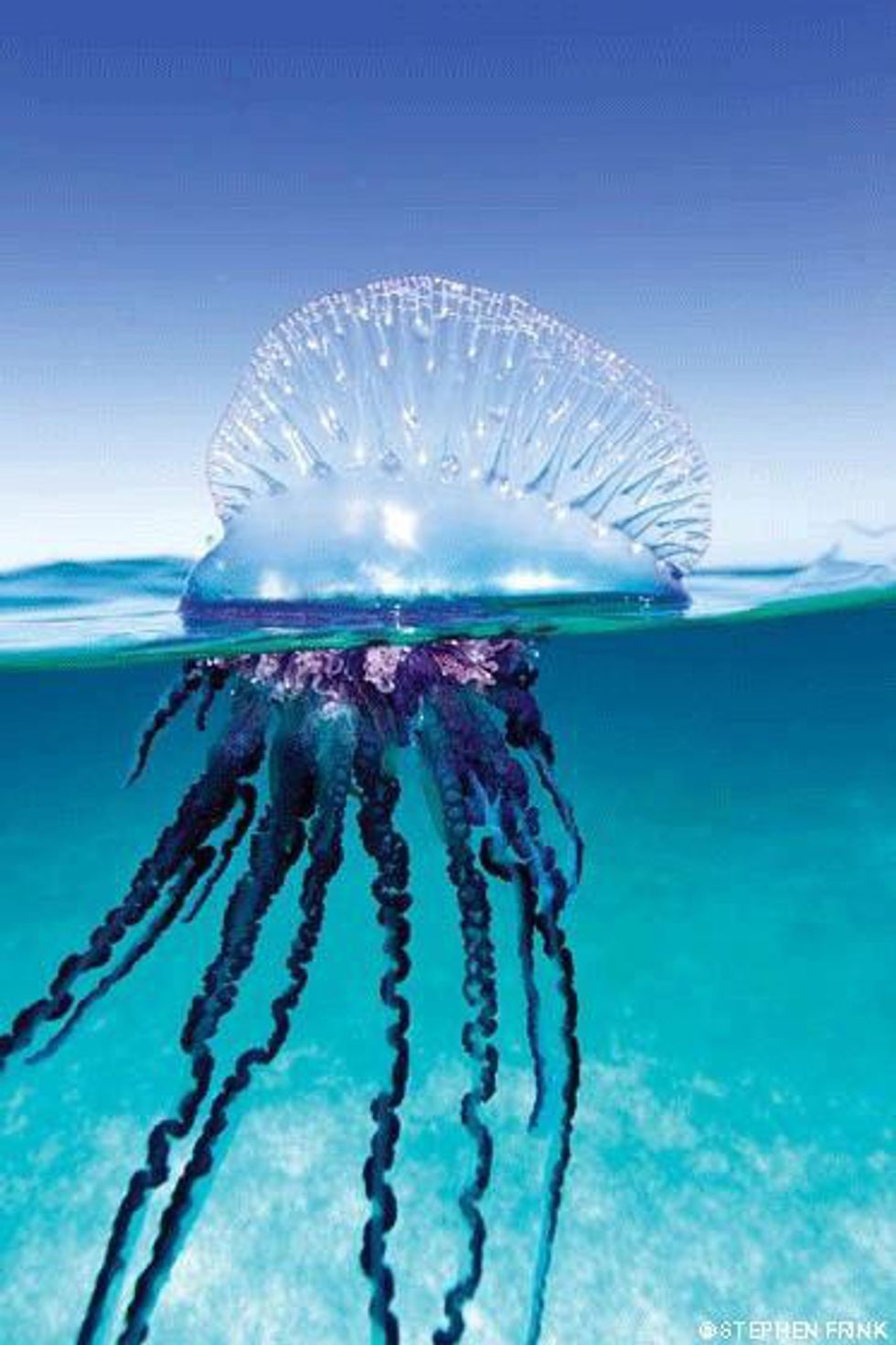I have always been interested in marine life, but one creature in particular has caught my eye recently, and that is the octopus. The octopus has many traits that make it stand apart from the lesser creatures of the sea. They're smart, agile, sneaky, and creative in how they survive. Some use advanced camouflage to strike from the shadows. Others use speed. Some use brute force. One thing is for certain though, the octopus does not mess around, they are lean, mean, killing machines, and that's why we should be terrified of them. Here's why.
1. They are smart
Via Giphy
The octopus is an intelligent animal. Not in the way an elephant or a dolphin is smart, though. No, the octopus is too busy plotting the death of all mankind to learn how to paint or jump through hoops at a woefully abusive sea-themed resort park. The octopus is capable of critical thinking, and problem-solving. As the above GIF shows, they can figure their way out of tough situations and burst forth like the tentacled monstrosities they are.
"But Zach," you cry, "Surely escaping a small jar is nothing to worry about!" If only these beasts were using their impressive intellect for mere party tricks! What you see as a cute gimmick, I see as a blossoming escape artist with a thirst for freedom.
Via Perezhilton
This was taken at the Seattle Aquarium in 2015, and clearly shows the octopus trying to climb out of the tank. Adventurous rascal or devious runaway? If these animals are so innocent, why do they attempt to escape so often?
2. They can learn
Yes, I addressed the Octopus' intelligence, but learning is a different level. Not only can the octopus be taught how to solve complex puzzles, there is even a study that suggests the octopus can perform what is called observational learning. Observational learning is learning by watching another.
A dog cannot learn to sit by watching another dog sit, but there is, at least, some evidence that an octopus can learn simply by watching others of its kind. The study found that an unconditioned octopus could observe a conditioned octopus retrieve food from a contraption. The unconditioned octopus could then be given the same contraption, and with no conditioning figure out how to get the food.
There is some dispute as to whether the study is replicable, but if the study were to hold up under peer review, it suggests these animals can teach each other information in a rudimentary way.
3. They are masters of stealth
Via Imgur
The octopus is not the fastest creature in the sea, but they make up for it with their ambush capability. They can appear instantly, and strike with precision. The octopus cannot always chase down its prey, so instead it waits for the prey to come too close and then it finishes it before it has a chance to get away.
Via Rocio
Being able to blend in is not the octopus' only tool of subterfuge, however. The Indonesian Mimic Octopus, as the name suggests, can mimic various sea creatures it encounters, like the Lion Fish or a sea snake. Being able to blend in and even take the form of another animal entirely gives the octopus even more weaponry to mobilize against humanity.
4. They are dangerous
Via Giphy
You may think the octopus pictured above is neat because it can change to such a brilliant blue, but that striking blue is a warning. That is a Blue Ring Octopus. Native to the Indian Ocean, these guys check in at five to eight inches long. They're very small -- one could easily fit in the palm of your hand. However, despite their small stature and amazing color displays, the Blue Ring Octopus is currently classified as one of the most deadly animals in the ocean. This is because one adult Blue Ring Octopus has enough venom to kill approximately 26 adult humans. This is done through a bite, which is often not even felt due to the size of the animal. The venom causes paralysis of muscles, meaning it can stop your heart and lungs in minutes. In case you thought this little horror had a bright side, there is also no anti-venom, meaning if you get bitten, you are done.
But what about other species? Surely they can't be as terrifying as the Blue Ring, right? Well, maybe. For another example of the dangers of the octopus, we return to the Seattle Aquarium. Yes, the same aquarium where the octopus tried to climb out of the tank from earlier. Except, the octopus in question had no plans of escaping.
The video above depicts the Giant Octopus at Seattle Aquarium. The octopus had been moved into a large shark tank because the octopus needed more space and the keepers figured its camouflage and size would deter the sharks from attacking it. After a few weeks, keepers began finding shark carcasses at the bottom of the tank. Every week more carcasses showed up, until one member of the crew stayed to find what was killing the sharks. As it turns out the octopus was ambushing the sharks using its camouflage, and then overpowering them with its strength and dexterity. Apparently biting something when you don't have a neck is even more difficult when it can attack you from eight sides at once.
5. They are monsters
Ignoring the low-hanging Cthulhu face joke, the octopus is just downright scary sometimes. Pictured above is the Blanket Octopus. Disregard the net-like webbing between the tentacles and it seems rather innocuous compared to the other Lovecraftian terrors we discussed earlier. Don't let its lack of venom and shark killing fool you because the Blanket Octopus has been known to rip the tentacles off of the Portuguese Man O' War jellyfish and use them to catch fish.
Via Pinterest
Besides being the most punk-rock of all Jellyfish, the Portuguese Man O' War is armed with an effective venom it uses to catch its prey. Does the Blanket Octopus care? It's an octopus, so what do you think? It rips those tentacles right off and whips them around to stun fish for itself. Violent and resourceful, the Blanket Octopus shows us exactly why the octopus is not one to be trifled it. It doesn't need weapons because it'll find the baddest of asses and beat you with that instead.6. They are aquatic
The octopus is a master of its domain. It can blend in to its surroundings, pump jets of water through its body to propel itself through the water (did I not mention that's how they swim?), and obviously it can breathe underwater. The minute you set foot in the ocean, you are now out of your element. You are slower, weaker, can't see, can't hear, can't breathe. You step into the octopus octagon and you have lost every advantage you have.
In review, the octopus is smart. It can learn through critical thinking and observational learning. The octopus is a master of stealth, using camouflage and mimicry to hide in wait. The octopus is dangerous. Whether through poison or strength, the octopus has a means of attacking. The octopus can be straight up scary, ripping the tentacles off a dangerous animal just so it can get dinner, and lastly, the octopus is a master of its environment, the water. Given a few thousand years of evolution and these guys may just be smart enough to start developing octopus tribes, and octopus culture. Then, octopus science. Then, octopus technology. I say it's only a matter of time before we are all doomed.
"But Zach," you once again exclaim, "The octopus is a sea creature, surely we are safe on land!"
I say:
Are we?
Via Giphy




























